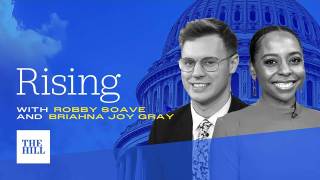Can a simple procedural reform fix universities’ speech policies?

The testimony of the presidents of Harvard, the University of Pennsylvania, and MIT before Congress on Dec. 5 produced an explosion of criticism. Much of it was focused on the hypocrisy of the presidents asserting a commitment to freedom of speech when it is so obvious that their institutions regularly ignore that commitment when speech offends progressive sensibilities. Penn’s president, Liz Magill, was in the unenviable position of trying to explain how Penn’s policy could permit the advocacy of the genocide of the Jews at the very moment that Penn was attempting to fire law professor Amy Wax for making racially offensive comments.
The outraged response to the presidents’ testimony produced a flood of illustrations of how elite universities suppress the expression of ideas that challenge progressive dogma. The critics attribute this to the capture of higher education by woke ideologues. But this Manichaean view does not reflect the reality of everyday life in the academy, and is not necessary to explain the patent ineffectiveness of university speech policies.
The simpler explanation is that universities have poorly structured incentive systems.
University speech policies are designed to protect the expression of ideas. University harassment policies prohibit conduct directed to an individual that creates an intimidating, hostile, or offensive educational environment. Therefore, by definition, the general expression of ideas that are not directed to individuals cannot constitute harassment.
The problem is not the difficulty in making this distinction, but who is called upon to make it.
The reason universities have speech policies is to restrain the ability of university administrators to suppress offensive or unpopular speech. Yet, the parties charged with enforcing these policies are university administrators — deans and diversity, equity and inclusion (DEI) officials. It does not require us to impute any ill-will to these administrators to recognize that they have a conflict of interest. Those tasked with sanctioning speech that crosses the line into prohibited conduct should not be making the decision as to whether the speech crosses the line into prohibited conduct.
Fortunately, there is a simple reform that can resolve this conflict of interest: the introduction of an initial review panel.
Before a member of the university community can be investigated for something he or she has written or said, the matter should be referred to an initial review panel. This panel consists of individuals who have a good understanding of both the university’s speech policy and its harassment policy, and are neutral in the sense that their only incentive is to determine which policy applies. If the panel determines that the matter exclusively concerns speech protected by the university’s speech policy, it dismisses the complaint. If the panel determines that the matter involves conduct directed toward an individual or individuals, it refers the matter to DEI officials for investigation or the relevant dean for resolution.

Inserting an initial review panel into the disciplinary process changes the incentive structure of the university in a salutary way. It takes the decision as to whether offensive speech is protected out of the hands of those whose job it is to prevent offensive conduct, and places it in the hands of neutral parties whose only incentive is to make the correct jurisdictional judgment. This simple procedural reform can go a long way toward ensuring that a university’s speech policy is enforced in a consistent, even-handed manner. It can also save universities from unnecessary expense and rancor. Investigating and litigating matters that are clearly covered by the institution’s speech policy is damaging to the reputation of both the party being investigated and the university.
But the proposal’s greatest virtue is that it can easily be implemented and does not require a major shift in university zeitgeist to be effective. It has the felicitous effect of helping resolve the conflict over free speech on campus without having to fight a battle in the culture war.
John Hasnas is a professor of ethics at Georgetown’s McDonough School of Business and professor of law (by courtesy) at Georgetown Law.
regular post copyright











